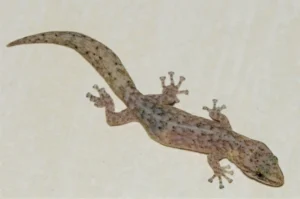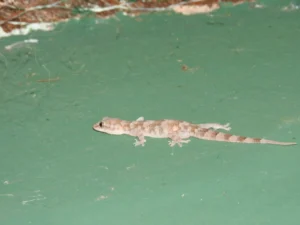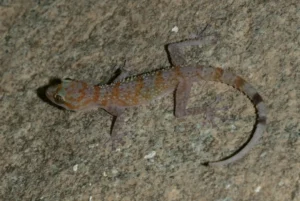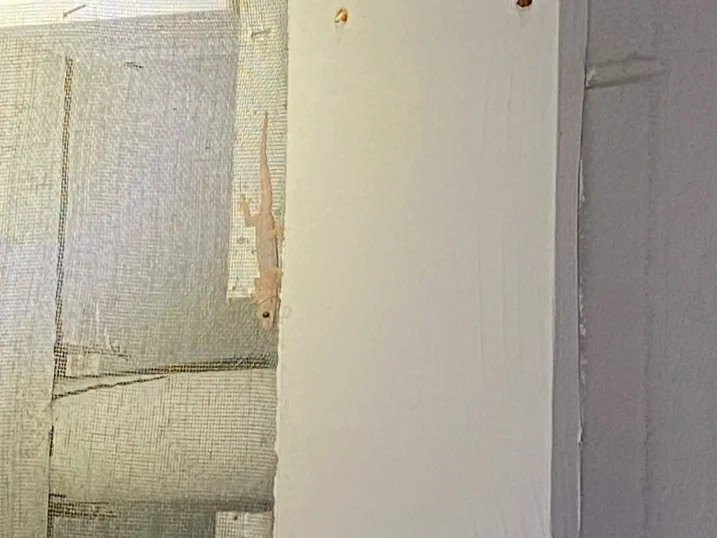It’s late at night, and you notice tiny geckos running along the edges of your front door. They move fast, slipping in and out of small cracks, making little sounds as they explore.
You might like geckos since they’re interesting little creatures, but you probably don’t want them sneaking inside every time you open the door. So you start wondering, how can you keep geckos away without hurting them or yourself?
You can keep geckos away from your front door by sealing gaps, controlling insects, reducing warmth, and using natural repellents. These steps make the area less inviting without harming the geckos. A few simple changes can make your entrance gecko-free and easy to maintain.
It might sound simple, but small, smart changes can keep geckos out without ever needing to touch them.
Why Geckos Hang Around Doors
Geckos don’t just pick your door at random.

They’re there for a few clear reasons:
Food: Geckos eat insects, so if bugs gather around your lights, your front door becomes their dinner spot.
Warmth: Doors, especially metal or wood ones, often stay warm at night, giving geckos a comfortable place to rest.
Shelter: Cracks and spaces around door frames are perfect hiding spots where they can stay safe from bigger animals.
Basically, your door can become a little gecko hangout if all three of these things come together.
Once you know why they’re there, it’s easier to make them leave.
Seal the Gaps and Cracks
One of the best ways to keep geckos out is to close off any small gaps they can slip through. They can fit into spaces smaller than you might think, so check around the frame and walls carefully.
-
Weatherstripping: Add weatherstrips along the sides and bottom of the door to close tiny spaces.
-
Door sweeps: These attach to the bottom of doors and block gaps while still letting you open and close easily.
-
Caulking: Fill in cracks around the door frame, walls, or siding to remove spots where they can hide.

Even if the geckos aren’t getting inside, sealing gaps makes the area less appealing because they like tight, covered places.
Reduce Insects Around the Door
Since geckos eat insects, cutting down their food supply is one of the easiest ways to make them go somewhere else.
-
Outdoor lights: Bright white lights attract bugs, which then attract geckos. Switch to yellow bug lights or motion-activated ones to cut that down.
-
Remove standing water: Puddles or damp areas draw insects. Make sure drains are clear and water doesn’t collect near your door.
-
Insect control: Simple steps like using fly traps or natural repellents can help lower the number of bugs hanging around.
If there aren’t as many insects to eat, geckos won’t have much reason to stay.
Natural Deterrents
Geckos don’t like certain smells, textures, or surfaces, and you can use that to your advantage. These natural methods won’t hurt them but can make your front door less comfortable for them.
-
Garlic or onion: The strong smell of garlic cloves or onion slices near your door can make them move away.
-
Peppermint oil: A few drops of peppermint oil on cotton balls placed by the door can help keep them off.
-
Coffee grounds: Used coffee grounds sprinkled around the doorstep can also work as a mild repellent.
These tricks don’t harm geckos; they just convince them to find another spot to hang out.
Keep the Area Clean and Dry
Geckos like damp, cluttered areas where they can hide easily. Keeping the space around your door clean and dry makes it much less inviting.
-
Clear away debris: Things like leaves, wood piles, or flower pots close to the door are great hiding spots. Move them farther away.
-
Trim plants: Shrubs or vines touching your doorway give geckos a path straight to your door. Trim them back regularly.
-
Dry surfaces: Make sure walls, steps, and entryways stay dry. Geckos are more likely to hang around if it’s damp or cool.

If your door area feels too open and dry, they’ll just move somewhere else.
Reduce Warmth Around the Door
Since geckos are cold-blooded, they’re attracted to warm places. Reducing heat near your front door can make it less tempting.
-
Avoid leaving lights on: Lights give off warmth and attract both insects and geckos.
-
Add shade: A small awning or shaded cover helps cool the area and keeps it less appealing.
A cooler doorway usually means fewer bugs and fewer geckos.
Humane Trapping and Relocation
If geckos keep coming back, you can gently catch and move them somewhere safe.
-
Sticky traps: Use mild, non-toxic sticky pads that only hold geckos temporarily. Check them often so you can release them quickly.
-
Small boxes: Place a small box near where you’ve seen a gecko. Once it crawls in, carefully carry it away and let it go outside in a quiet area.
Never use poison or harmful sprays. Geckos are harmless and actually help control insect numbers.
When to Call a Professional
If geckos keep showing up no matter what you do, it might be time to get help.
A pest control expert can check your home for entry points, help with insect control, and suggest safe ways to keep geckos away.
Good professionals don’t kill geckos. They help you manage the space so both you and the geckos stay safe.
Conclusion
Keeping geckos away from your front door isn’t about hurting them. It’s about making your entryway less attractive.
Seal up gaps, cut down on insects, cool the area, and use natural repellents to keep them out.
A clean, dry, and well-kept doorway, combined with simple things like peppermint oil, yellow bug lights, and tidy surroundings, can make a big difference. If they’re still persistent, gentle trapping and relocation is a safe option.
When you understand what draws geckos in and take a few easy steps to remove those things, you can keep your front door clear while still respecting these small, interesting creatures.
Hi, my name is Ezra Mushala, i have been interested animals all my life. I am the main author and editor here at snakeinformer.com.

